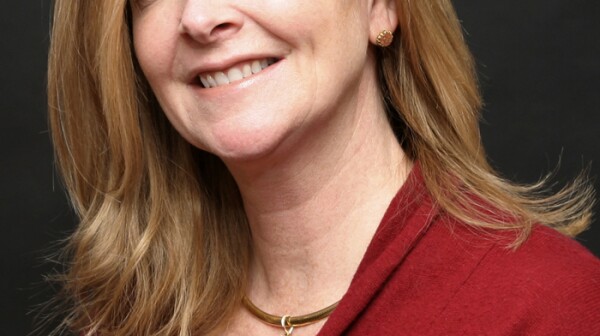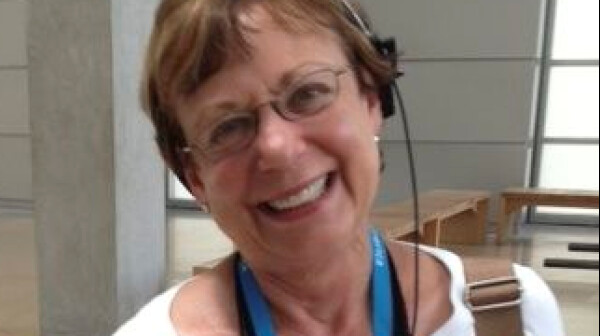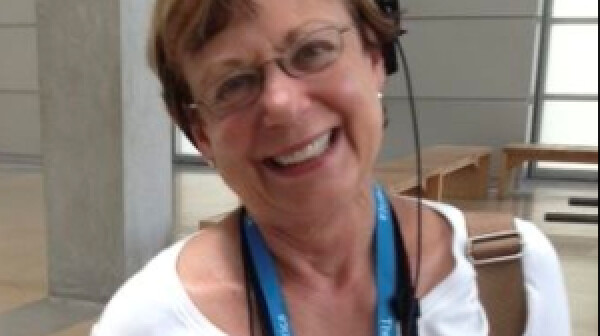AARP Eye Center
CLOSE ×
Search
Popular Searches
Suggested Links
I’m a pretty typical AARP member in CO. I’m in my 50s, active, working, have been a caregiver in the past for older loved ones while raising kids at home and balancing the challenges of being a member of the “sandwich generation.” I have felt the tug of never giving enough while having to balance some me-time to avoid burn out. I’m not unusual, I’m the new normal. That is why AARP has become so focused on providing support to caregivers, because nationally there are 42 million caregivers, and more than 584,000 family caregivers in our state who help their loved ones live independently.
When I moved my mom to Denver, she was 90 years old and she suffered from a form of dementia that made her unable to speak. Our family had decided that the best place for her to live would be a dementia unit in the same building where my dad would reside in independent living. Mom’s dementia unit was beautiful. It was sunny, upbeat, and attractively furnished. We thought she would be very happy there. The first day my husband and I visited her after her move to the unit, Mom was sitting in one of the anterooms. When we greeted her, she smiled, took my hand and, though she rarely spoke anymore, she clearly blurted out the words “I want to go home.” I was devasted. I understood how much she missed her beautiful home in Chicago, her blue and white china collection, her paintings she and Dad had purchased from their travels all over the world, her sunroom where she listened to music and knitted everyone scarves and hats for Christmas. What could I say that would make her feel better? I wasn’t sure anything would work, but I knew I had to try to at least attempt to encourage her to look on the bright side of her situation. I continued to hold her hand, I tried to look positive and I responded to her plea. “Mom,” I said, “I know how hard this is for you, but we can’t take care of you as well as the people here can take care of you. We’re all going to come and visit you and be with you as much as we can, but this is your new home now.” From that day on she never complained again and she graciously made the most of her situation. She participated in the unit’s activities, learned how to draw, showed people her soup making skills and went on field trips. It wasn’t easy to tell her what I needed to say, and it wasn’t easy for her to accept my words, but by talking about it together, each of us was more able to move on. Although I can’t say that during the time I cared for Mom I always chose the right words to say, at least I had the satisfaction of knowing that, in this one particular moment, I had communicated effectively. I think Mom could tell that I loved her and that I wanted to take care of her in the best way possible. I think she understood the message.
Lazy Days of Summer
Blog by Jane Barton
I can think of many times during the period when I was taking care of my parents and needed to speak out much more than is my nature. Whether it was informing the housing director that Dad needed more care after an emergency room visit or clearing up issues about my mom with the beauty salon or reminding a certified nurse assistant to check on a new prescription for my dad, I knew I had to be the one to intercede. Certainly my parents wouldn’t! I had to stand my ground with my parents too. Once I took my father shopping for a birthday present for his great-grandson. Dad, age 95 and ¾ had just begun walking with the assistance of a cane and his gait was very slow. We arrived at a Target superstore and I pulled out a cart so that Dad could ride rather than walk. “I am not going to get in this cart,” he said defiantly. “Oh yes you are,” I said equally defiantly. He had already resisted manning a cart at the grocery store during an earlier incident. Several verbal exchanges between us occurred. Finally he gave in when I offered my last plea. “It’s just like a golf cart.” At that point he knew he had lost and reluctantly he got into the cart and, after a few simple instructions from me, he was off and running. I had to quicken my pace to keep up and direct him to the toy section several aisles down. He had a big smile on his face and displayed a sense of power in his demeanor as he gripped the steering wheel, and pushed the pedal. I think the whole experience reminded him of driving the car he had only given up operating a few months prior. We arrived at our destination where he happily and deliberately chose a shiny red Hot Wheels car, proceeded to the card aisle and selected the only great-grandson birthday card on the stand. With great satisfaction we checked out. Dad got out of the cart and resumed walking with his cane and we headed home. I was proud of myself for standing my ground. I think Dad was happy too.
Blog by Jane Barton
Column by Marissa Volpe -
Column by Marissa Volpe
Blog by Jane Barton
A few years ago when I was taking care of my 90 year-old mom and my 95 year-old dad, articles and books were just beginning to be written about the importance of taking care of yourself if you were the primary caregiver. At that point I was so wrapped up in the day-to-day demands of supervising Mom and Dad that I couldn’t really read much. It amazes me that I did attempt to take care of myself instinctively without realizing the concept of what the experts were trying to convey. I tried to stay true to my regular exercise schedule as much as possible; I spent time with my grandchildren who always made me smile; and occasionally I even went out for a quiet dinner with just my husband. My favorite “me” memory took place around the time of Mother’s Day soon after I had moved Mom, age 90 and Dad, age 95 from Chicago to Denver where I live. I had gone to the grocery store to buy some dinner that I could make quickly (probably a rotisserie chicken) and there at the entrance to the store was a beautiful display of orange star plants all lined up in a row just in time for Mothers’ Day. Normally I would have admired the plants and then passed up purchasing one because they were too expensive. But on this day, relieved that Mom was comfortably ensconced in her new dementia unit and Dad was temporarily situated at our house and not complaining, I spontaneously took the plunge and purchased a plant with a profusion of gorgeous orange five-star blossoms. I placed it in my kitchen where it brightened my spirits for many days. As time went on, it became more difficult to balance out my parents’ needs with some time for myself, and too expensive to keep on buying beautiful houseplants, but I continued to make the effort to take time off for myself. Doing so made me more able to cope with all the crises that came along. And you know what? I continue this practice even now that both my parents have passed away. It works.
Search AARP Colorado
Connecting you to what matters most, like neighbors do. Find events, volunteer opportunities and more near you.
Sign Up & Stay Connected








































































